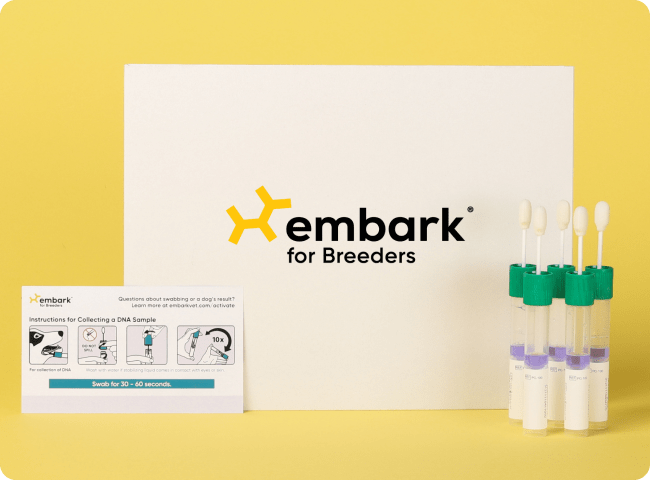Persistent Mullerian Duct Syndrome, PMDS
A developmental disease that causes male dogs to develop parts of the female reproductive tract. This can cause significant complications later in life. Female dogs with PMDS have zero anatomic abnormalities. PMDS males are quite normal as far as their male external genitalia goes, though 50% will have one or two undescended testes (unilateral or bilateral cryptorchidism).
-
Signs and symptoms
Male puppies have a 50% chance of being cryptorchid (one or two undescended testicles), which is recognized in puppies. Cryptorchid dogs are more likely to develop testicular tumors and have poor fertility. PMDS dogs can also suffer from complications of their persistent uterus, including pyometra or hydrometra (pus or fluid-filled uterus) and endometritis (inflammation of the uterine lining); symptoms for these could range from abdominal swelling to abnormal behavior such as increased drinking to fever, vomiting, and collapse.
Dogs are born with this condition, but it is often not recognized until genetic testing or surgical sterilization is performed. -
Diagnosis
Genetic testing, clinical signs, and abdominal ultrasound can all be used in diagnosing this disease.
-
Treatment
The treatment for both of these sequelae is surgical removal of the uterus and undescended testicles (orchidohysterectomy); however, genetic testing and prophylactic removal of the offending organs is probably the best way to treat this condition.
-
What to do if your dog is at risk
Actions
- Genetic testing and surgical sterilization before complications arise are the best ways to prevent future problems from this disorder.
-
Genetic Information
This mutation was first described in Miniature and Standard Schnauzers.
This disease is inherited in an autosomal recessive manner, meaning that affected dogs must have two copies of the mutation to show clinical signs.
Gene names:
AMHR2 ‐ chr
Inheritance type:
recessive
Citations:
-
Breeds affected
This health condition affects the following breeds
Learn about your dog’s unique genetic health
Dog owners
Breed identification, health and trait insights, personalized care recommendations, and the world’s first canine relative finder—all in one leading dog DNA test.
Learn about the report for dog ownersShop the test
Breeding programs
Embark’s test for breeding programs is one comprehensive DNA test designed with your needs in mind.
Learn about the report for breedersShop the test



